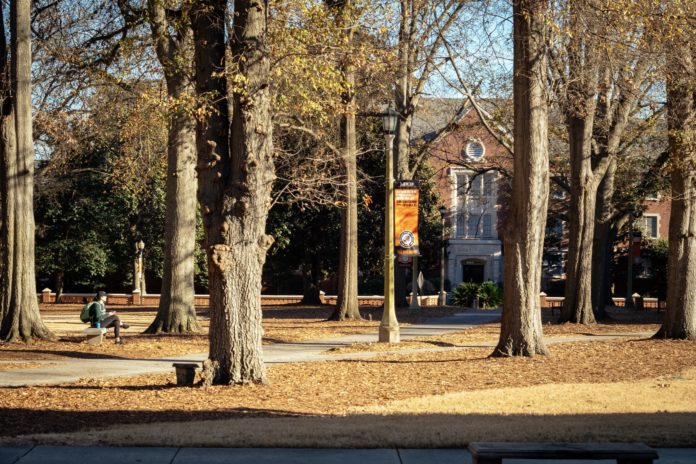ATLANTA — The amount of education Georgians attain plays a major role in quality of life, job success and many other measures of prosperity for individuals and society, according to a report released today by the Atlanta Regional Council for Higher Education. Mercer University’s Atlanta campus is a member of the 19-institution consortium, which builds awareness of the size, scope, impact and value of higher education and helps its members share strengths through cooperative programs.
“Higher Return: How Investing in Education Pays off For Georgia” – Online at www.atlantahighered.org/ReturnOnInvestment – shows that education is a smart investment for Georgians and their state. It documents how education at all levels pays off for individuals in measures ranging from higher salaries to home ownership to children who tend to do better in school. Benefits to the state include a more talented workforce, higher tax revenues, lower spending for prisons and public assistance, and healthier citizens. Some findings:
Georgia college graduates average twice the income – and half the unemployment – of high school graduates.
One-fourth of adult Georgians who did not finish high school live in poverty.
In Georgia homes where no one finished high school, over half of children under 17 live in poverty.
On average, because of higher income, a Georgian with a bachelor’s degree pays 72 percent more in state and local taxes than a person with a high school degree.
Eighty-six percent of prisoners in Georgia did not continue education past high school. Their incarceration costs Georgia nearly $800 million annually.
The strong correlation between education and income is evident among Georgia counties, with only 11 of 159 counties exceeding the U.S. level for educational attainment.
The report, sponsored in part by the Georgia Power Foundation and the Robert W. Woodruff Foundation, analyzes data from the U.S. Census Bureau American Community Survey and other federal and state government data sources. Data was compiled and analyzed for ARCHE by Human Capital Research Corp.
“The numbers are dramatic – when we invest in education, as individuals and as a society, there are clear and measurable returns,” said ARCHE President Michael A. Gerber. “And if we fail to invest, we pay the costs.”
Better Jobs, Less Poverty
The report compares Georgia salaries for high school graduates to college grads in jobs ranging from auto mechanics to sales reps. One example: A retail salesperson with a bachelor’s degree makes on average more than twice as much ($53,121) than a salesperson with a high school diploma ($26,293).
The report also shows that the odds of living in poverty plummet as education levels rise. About one-fourth of adult Georgians who didn’t finish high school live in poverty. That percentage drops rapidly as education levels.
More Taxes Collected, Less Spent
The state is perhaps the biggest beneficiary of higher education levels. If just 1 percent of Georgia’s workers with high school diplomas moved to the bachelor’s degree category, Georgia would gain an additional $32 million more per year in state and local taxes ($1.2 billion over a 40-year working-life period).
On the other hand, people with lower levels of education receive the majority of spending for public assistance and prisons. In addition, about 64 cents of every dollar Georgia spends on public assistance goes to citizens with a high school diploma or less.
Key Determinant of Well Being
Chart after chart in the report shows education as key to a better quality of life:
Homeownership, the American dream, has a strong correlation to education level.
States that rank low in education levels rank higher in households that have difficulty providing enough food for all members.
Georgia students who have college-educated parents score higher on the SAT.
Georgians 65 and older with more education are less likely to report difficulty performing a wide range of activities.
About ARCHE
The Atlanta Regional Council for Higher Education brings together 19 Atlanta-area public and private colleges and universities. Founded in 1938, ARCHE builds awareness of the size, scope, impact and value of higher education and helps its members share strengths through cooperative programs. Visit www.atlantahighered.org for information about ARCHE, its members, and its reports.
— 30 —










